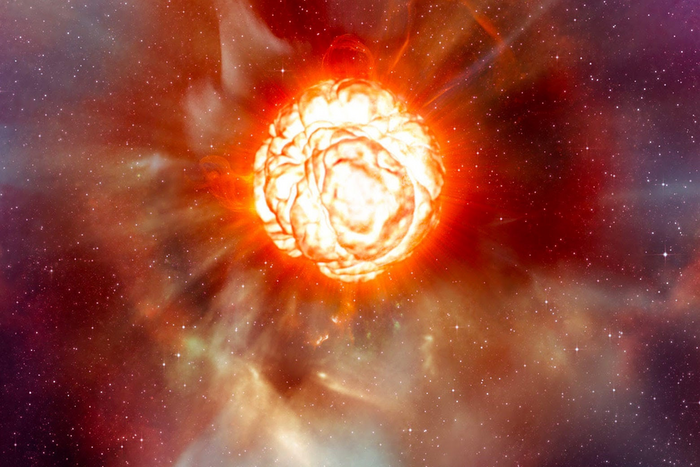Massive stars send out ‘warning’ before they are about to explode and die

Your support helps us to tell the story
From reproductive rights to climate change to Big Tech, The Independent is on the ground when the story is developing. Whether it's investigating the financials of Elon Musk's pro-Trump PAC or producing our latest documentary, 'The A Word', which shines a light on the American women fighting for reproductive rights, we know how important it is to parse out the facts from the messaging.
At such a critical moment in US history, we need reporters on the ground. Your donation allows us to keep sending journalists to speak to both sides of the story.
The Independent is trusted by Americans across the entire political spectrum. And unlike many other quality news outlets, we choose not to lock Americans out of our reporting and analysis with paywalls. We believe quality journalism should be available to everyone, paid for by those who can afford it.
Your support makes all the difference.Massive stars send out something of an ‘early warning signal’ when they are about to explode into a supernova and die, scientists have found.
When a star is reaching the last stage of its life, it will suddenly go about a hundred times more faint than usual, they say. That will last for a few months and then the star will die out, they say.
The dimming effect happens when material suddenly accumulates around the dying star, blocking out the light, they say.
The finding could help astronomers watch such stars as they explode – rather than noticing them afterwards, they say.
Scientists were previously unsure how long this process takes. Researchers are now able to say that it will last a few months, and have been able to better understand what stars might look like as they are getting wrapped up in those “cocoons” before they explode.
“The dense material almost completely obscures the star, making it 100 times fainter in the visible part of the spectrum. This means that, the day before the star explodes, you likely wouldn’t be able to see it was there.
“Until now, we’ve only been able to get detailed observations of supernovae hours after they’ve already happened. With this early-warning system we can get ready to observe them real-time, to point the world’s best telescopes at the precursor stars, and watch them getting literally ripped apart in front of our eyes.”
The new findings are reported in a paper, ‘Explosion Imminent: the appearance of Red Supergiants at the point of core-collapse’, published in the Monthly Notices of the Royal Astronomical Society.
Join our commenting forum
Join thought-provoking conversations, follow other Independent readers and see their replies
Comments